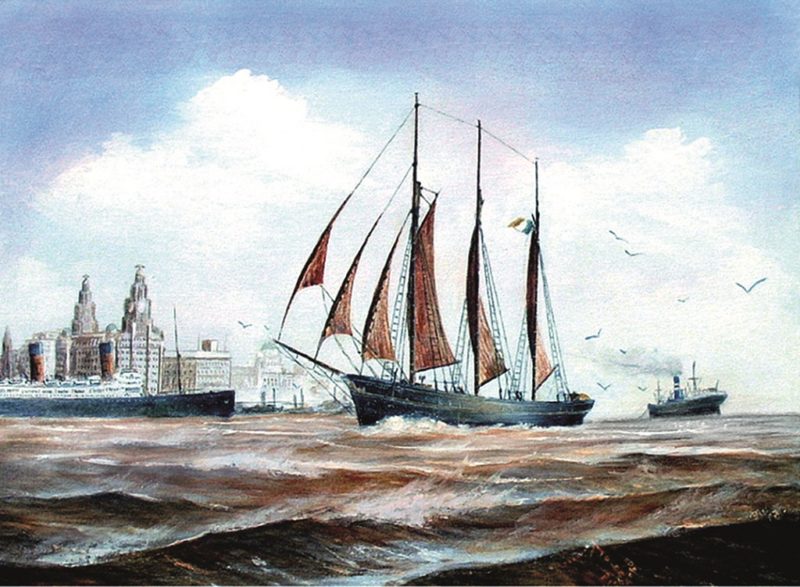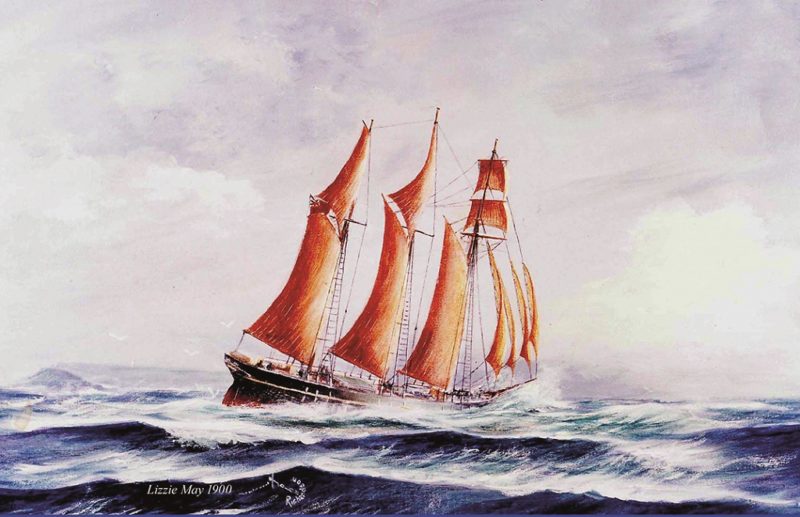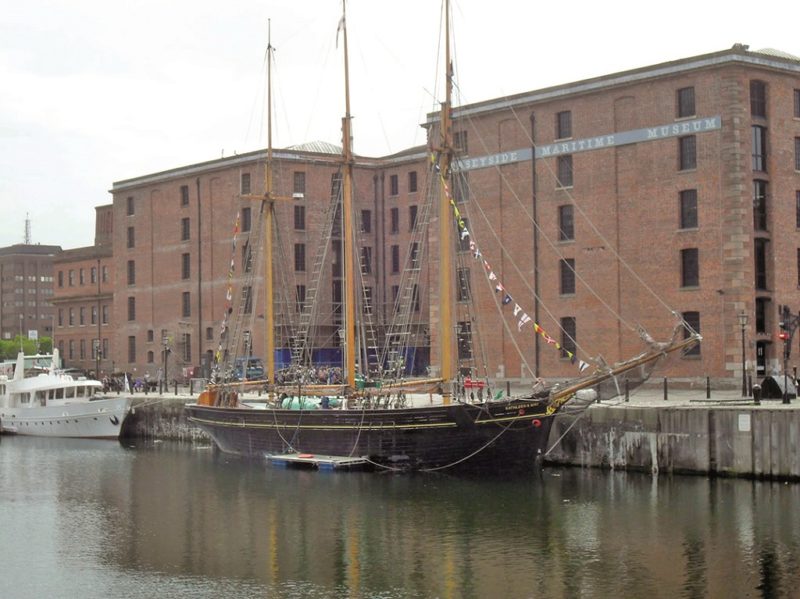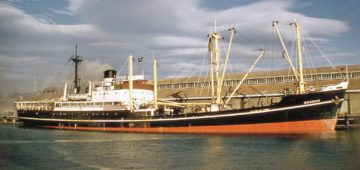
By the turn of the 20th century the steamships of the day had decisively taken the ocean trade away from the sailing vessels, and that led to just a small number of coastal sailing ships being built in the UK. But in North Wales where sailing coasters were used to great effect, Captain John Coppack and his brother took it upon themselves to have a small topsail schooner built for the shallow waters of the North Wales slate ports.
They decided on a ship of about 150 gross tons on which Captain Coppack with a mate and four sailors could man her. Such a size ship was quite the norm in North Wales where little ships could load their cargoes of slate or bricks from the shallow water quarry ports.
Therefore, it was at the latter end of 1899 that a contract for the Coppacks to build their planned ship was given to the highly acclaimed Ferguson & Baird of Connah’s Quay. The frame of the ship was double framed oak over three-inch pine planks.
The result of the build was a vessel of 99 nett, 136 gross and a deadweight of 226 tons. She had a waterline length of 98 feet and a beam of 23 feet. The bowsprit on any sailing ship is never included in the ship’s length. The topsail schooner was launched in April 1900 and christened by both of Captain Coppack’s daughters Lizzie and May, and such was the name of Lizzie May being given to the double topsail schooner with her reddish brick red sails. The building costs of Captain Coppack’s schooner was £2,700.
The Lizzie May’s first cargo was 226 tons of house bricks from North Wales to Dover, from then on with her crew of six, she traded on the west coast of the UK with Liverpool being her most visited port and from where she lugged coal from Garston to Ireland. The youngest member of the crew on such ships always acted as the cook.


In 1908 the Lizzie May was sold for £1,700 to Martin J. Fleming of Youghal in County Cork and was given a name change. The wife of the new owner was named Kathleen while his daughter’s name was May, and as a result the new name of the schooner became Kathleen & May. Under the Irish flag the schooner continued plying the same sailing routes with the same cargoes of Welsh slate, Lancashire coal, sand or any other bulk cargoes. However, in 1931 the Kathleen & May changed hands once again and went to Captain Jewell of Appledore for £700. He spent a further £800 on a refit which included an 80HP diesel engine. The topsails were removed and self-reefing gear was fitted to the main and mizzen sails. After the death of Captain Jewell in 1945 the schooner passed to his son Tommy.
In 1947 the martingale boom was removed from the bowsprit and the little ship continued on the Irish Sea coal trade which by that time was in severe decline. In the same year she was involved in a heavy collision at Swansea’s south dock with the local fishing trawler Tenby Castle whilst trying to leave with coal for Ireland. That accident which later proved to be quite costly left her with a stove in bow and a bowsprit that carried away.
Kathleen & May was the last ever sailing ship to trade in and out of Liverpool. But with no work or any prospects of it in sight in the late 1950s the Kathleen & May was acquired by a film company and was used in a small number of films before being laid up in Southampton Water.
But after lying there for a few months and while she was rotting away, the out of work schooner was spotted in 1966 by master mariner Captain Paul Davis. Paul, who had a love for sail, sold most of his collection of vintage motor cars to raise the money to buy the out of work and unwanted former sailing collier. With a complement of just one, who was a retired agricultural engineer, the two men sailed her around the coast from Southampton to Appledore, where to avoid harbour dues, she was berthed on the mud in the estuary outside the port. Paul Davis resigned his post with James Fisher & Co. and spent the next five years working on the restoration of the schooner with the help of volunteers, all of which was financed by the sale of the last of his vintage cars. Occasionly he conducted sea trials on any of the new vessels that were built by the Appledore shipbuilders while he continued with the restoration of his schooner. Paul’s ambition was to restore the Kathleen & May to a working condition and to ply her once again as a merchantman, but due to ever increasing financial costs the job proved too big a challenge.
Therefore, it was in 1970 that he was reluctantly forced to sell her. From then on, the little schooner that nobody wanted went to the National Trust and was laid up at Gloucester.
In 1999 she was sold to Steve Clarke and moved to Bideford where another effort was made to restore the ship, and where the author of this story lived and helped in the restoration. As a result of his efforts in restoring Kathleen & May, Councillor Steve Clarke was awarded the OBE in 2008. She is currently moored in Salthouse Dock at the Liverpool Maritime Museum. The 118 year-old schooner is open to visitors and funding is being provided by the Kathleen & May Heritage Trust.






Comments
Sorry, comments are closed for this item